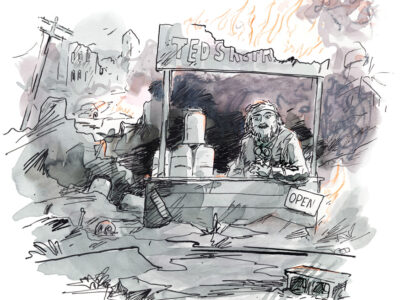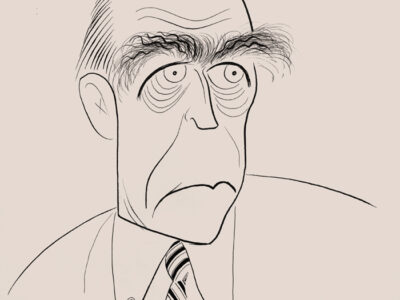
On haunting other people’s stories.
Nick Lyons
For several years, nearly four decades ago, I wrote books for others. Each had a story to tell but no way to bring it to print. The first came to me by chance. A neighbor, who wrote professionally and knew I was an editor, confided that she had blocked stone cold on a lucrative book assignment. She was two years overdue on her contract and had submitted 30 pages of her book to Arthur, her editor and publisher, each page repeating the same first page.
Arthur was not pleased. I had known him well when we worked together at Crown Publishers. He was a king-maker. He’d found and edited four bestsellers. My neighbor showed me a blistering letter from him, severe and formal, indicating that if her manuscript did not arrive within five weeks, he would apply all manner of sanctions and thumb-screws, short of water-boarding, to get his advanced monies back. The writer of course froze several degrees more.
I held hurried negotiations with her agent, and full of trepidation I signed on for the job, to receive the remainder of the large advance, half of all royalties, and no credit for my work.
I had never played ghost, but with four young children and my wife a committed painter who did not yet sell her work, I was desperate. I’d begged an extra week or two to pay the rent. At a recent family dinner our waiter had firmly informed me that American Express demanded he destroy my credit card. He did so loudly.
I wrote the book, about the mother of a famous politician, in a few days more than five weeks, and it managed to squeeze onto the bestseller list.
Arthur found the other three. He had liked their stories and when each would-be author pleaded inability to write a book, called in his speedy ghost. Late one night, after locking up the text for the first of these, he told me that if I could write them so quickly and well, he could make me a millionaire in two years. I told him that was not my intention and he told me it was every man’s intention.
I wrote the others in five weeks each. I worked until long after midnight, over weekends, during lunch hours, while teaching weekday evenings at Hunter College, where I became full professor, and working full-time at Crown.
In one of the books I became an adopted woman searching for 20 years for her biological parents. In another, a veterinarian who used EST to explain how dogs conned their owners into thinking they were sick. And in the third I became a woman who left her husband and 12-year-old daughter to claim a free new life.
It was not such unpleasant work. Using a tape recorder, I asked leading questions whose responses might become paragraphs or whole sections of the story. I learned to break a life into chapters early, and to build a narrative that had enough suspense to keep a reader reading. And especially I learned to mimic another’s voice, keeping phrases, idiosyncrasies, diction, and syntax that were as inimitable as a thumbprint’s whorls. I preferred to keep “a tiny little small house” in a Texas woman’s description of where she and her family lived, rather than change her words to the common “small.” I told an author who spoke of her forceful and “authoritative” military father to find an incident to help a reader distinguish him from all the other military men in their minds. The author shyly admitted that he had once punched a horse and knocked it out cold. Often, after midnight, when my loud and frantic life was silent except for the talking machine, I’d replay a passage four or five times to catch its inner heart. The story was not mine but another’s—someone who had lived it, in whom it lived—it just needed the right words to emerge. I cut dead sentences and kept pressing the narrative until I could see and feel and make palpable, say, a horrendous Thanksgiving dinner in all its ferocious detail.
The great event started at 6:30 in the morning, just before daylight, with the arrival of all the wives and sisters and cousins and a grandmother or two. Two turkeys were basting nicely by 11 and the sweet potatoes with apricot jam and marshmallows were readied for their turn. The dishes were set, the platters laid out, and the hum of all those women indentured to the kitchen rose to compete with the raucous shouts from the men in another room mad for Southeastern Conference football games, one after the other, that went on without stop from morning until dark, the tension building through the day until finally a reader might have a hint as to why a young and sensitive wife might bolt from her husband and child.
And in another book, an adopted woman, who after decades of frustrating search finally arranged to meet her biological mother face to face only to be told: “I’m not your mother”—though she was.
I started to love the work. I learned structure and pacing and the precise sounds of individual diction. I needed solvency, not millions, but I learned more about the delicious subtleties of writing, and somehow much about my own search in those days for a voice that was distinctively my own.
Balzac, I sometimes remind myself, had done such work for 10 years, and then wrote Lost Illusions, Cousin Bette, A Harlot High and Low, and 60 or 70 others in his next decade—but I was too stressed and exhausted and exhilarated in those years to be embarrassed about writing books for others.
And now I’ve written hundreds of essays and several dozen books in a hard-won voice I own—most of what I wanted to write. Now I’m hugely grateful for those few years—intense, wild, vivid, unique, when I became for a while a person not me—and often smile when I think of what crazy energy I had then, how much I learned, in my life as a ghost.
Nick Lyons W’53 is a longtime Gazette contributor.




